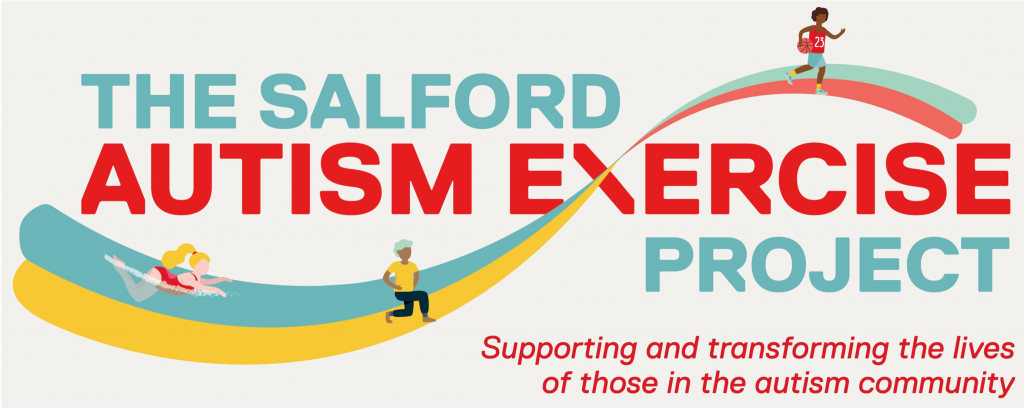
Researchers at the University of Salford have launched the Salford Autism Exercise Project to prove if exercise can help children with Autism Spectrum Disorder (ASD) with their sleep and their ability to learn new words.
Many families that have a child with Autism Spectrum Disorder search for new ways to improve sleep disruption and communication problems.
The Salford Autism Exercise Project offers 6 free swim lessons for children aged 7 to 11 as a part of a study to test whether exercise can help children with Autism with their sleep and communication.
The Seashell Trust, Cheadle hosts the swim classes. They are adapted to small groups, using sign language and flip charts with pictures to try and help with the social communication deficits common with Autism.
Get moving this autumn. Check out the range of inclusive activities we have on offer for the whole family including swimming, gym sessions and football.
Further details : https://t.co/QykudZkxlZ
To make a booking contact active@seashelltrust.org.uk pic.twitter.com/PmUEFiLTDq
— Seashell (@seashelltrust) November 8, 2021
Dr David Tate, Researcher at The University of Salford, said: “Seashell Trust have adapted it to a way where we can say one thing it is not just parents, but the children who have loved the intervention.”
The Salford Researchers monitor the children’s ability to learn new words and sleep before and after the swimming class to assess whether exercise benefits-improved sleep and learning. They then compare the results with another group who will not take part in the activity at first.
Dr Tate explains: “There hasn’t been as much change with word learning.
We’ve seen that a good night of sleep does increase memory and that’s what we’re testing.
He added: “We may still see change, but what we have seen is an increase in sleep time.”
The preliminary results:
The team of experts, Dr Amy Bidgood, Dr David Tate and Eve Bent, have found that the study’s preliminary results show a link between exercise and sleep.
Dr Tate says: “On average, we’re looking at, you know, an hour to an hour and a half more sleep within the intervention group when compared to the control group.
That fits with our hypothesis. We base this on something called the melatonin hypothesis.
The melatonin in our body is naturally created. When the lights go out, and you start feeling like you’re tired.”
He added: The part of the brain called the hypothalamus’s suprachiasmatic nucleus releases the brain’s melatonin.”
Once they have finished collecting data, they will be able to test whether the children in the intervention group were better able to learn the novel words than the children in the control group and whether their sleep improved more over the course of the project.
If proven that exercise can benefit autistic children’s sleep and/or word learning. The Salford Autism Exercise Project hope to expand the intervention in future to other groups of children and other forms of exercise.
The Salford Autism Exercise Project plans to have the study completed by February. They plan to hold an event to disseminate the proper findings before putting publications forward, accessible to the public.
If you want to hear more about the project, you can email autismexerciseproject@salford.ac.uk and check out the Salford Autism Exercise Project website. You can also find us on Facebook, Instagram, and Twitter.
Project Team: Dr Amy Bidgood, David Tate, Eve Bent
Research Group: Health Sciences Research Centre, Psychology, Cognitive Development
Project Funder: The Waterloo Foundation
Watch the interview with Expert Dr Tate below.














Recent Comments